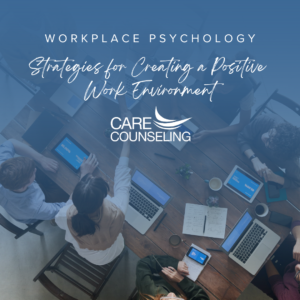Exploring the Depths of Workplace Psychology
 The workplace is not just a physical space where individuals perform their jobs; it is a dynamic ecosystem influenced by various psychological factors. Workplace psychology encompasses a wide range of topics, including organizational behavior, employee motivation, leadership styles, and strategies for fostering a positive work environment. In this blog post, we will delve into the depths of workplace psychology, examining key concepts that shape the dynamics of the modern workplace and exploring strategies for creating a thriving and harmonious work environment.
The workplace is not just a physical space where individuals perform their jobs; it is a dynamic ecosystem influenced by various psychological factors. Workplace psychology encompasses a wide range of topics, including organizational behavior, employee motivation, leadership styles, and strategies for fostering a positive work environment. In this blog post, we will delve into the depths of workplace psychology, examining key concepts that shape the dynamics of the modern workplace and exploring strategies for creating a thriving and harmonious work environment.
Organizational behavior investigates how individuals and groups interact within an organization. It explores the impact of various factors, such as communication, decision-making processes, and organizational culture, on employee behavior and performance. By understanding organizational behavior, leaders and managers can shape a more positive and productive work environment.
Employee motivation plays a pivotal role in driving productivity and job satisfaction. Understanding the factors that motivate employees empowers organizations to create an environment that fosters intrinsic motivation. Providing opportunities for growth, recognition, and meaningful work can enhance employee engagement and performance. Moreover, implementing goal-setting techniques and promoting a positive work culture that values employee well-being and work-life balance can contribute to sustained motivation.
Leadership styles significantly impact the work environment and employee satisfaction. Different leadership approaches, such as transformational, democratic, or servant leadership, can influence employee engagement, creativity, and overall job satisfaction. Effective leaders prioritize communication, inspire their teams, and empower employees to reach their full potential. By fostering a positive and supportive leadership style, organizations can cultivate an environment where employees feel valued and motivated.
Creating a Positive Work Environment:
A positive work environment is the foundation for employee well-being, productivity, and retention. Strategies for creating a positive work environment include:
- Promoting Open Communication: Encouraging transparent and effective communication channels enhances collaboration, trust, and a sense of belonging within the organization.
- Prioritizing Employee Well-being: Organizations should support employee well-being through initiatives like flexible work arrangements, wellness programs, and mental health support. Recognizing and valuing the holistic needs of employees contributes to their overall satisfaction and engagement.
- Nurturing a Culture of Appreciation: Recognizing and appreciating employee contributions boosts morale, fosters loyalty, and strengthens the sense of belonging within the organization. Celebrating achievements and providing constructive feedback are essential components of a positive work culture.
- Encouraging Skill Development: Offering opportunities for professional growth and development enables employees to enhance their skills, feel valued, and take on new challenges. This fosters a sense of empowerment and motivation.
Workplace psychology shines a light on the critical elements that shape the dynamics of organizations. By understanding organizational behavior, employee motivation, leadership styles, and strategies for creating a positive work environment, organizations can foster a culture that nurtures employee well-being, engagement, and productivity. Prioritizing effective communication, employee motivation, and a positive work culture not only benefits individual employees but also contributes to organizational success and long-term sustainability. By investing in workplace psychology, organizations can create thriving environments where employees feel valued, motivated, and inspired to reach their full potential.



























